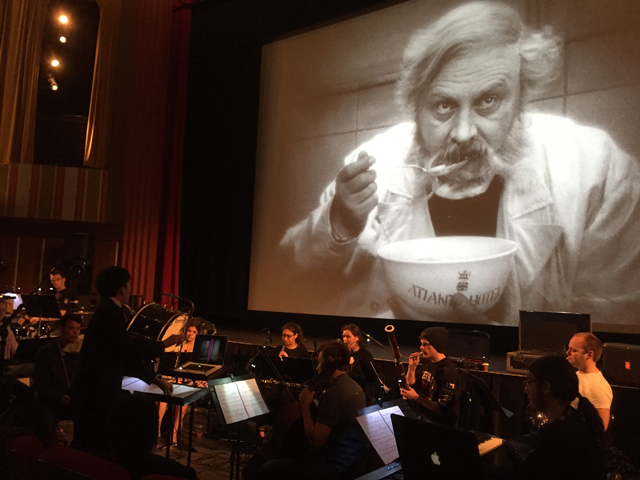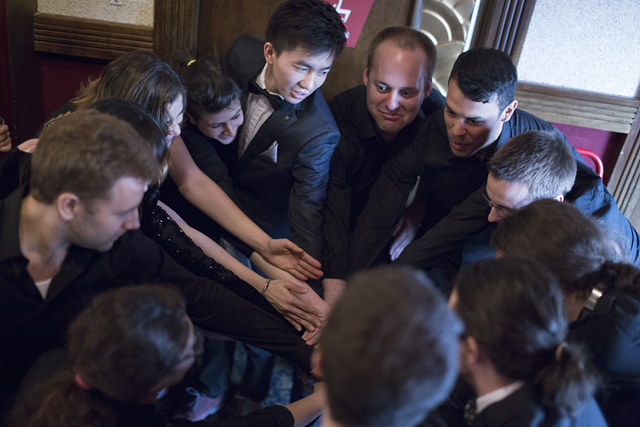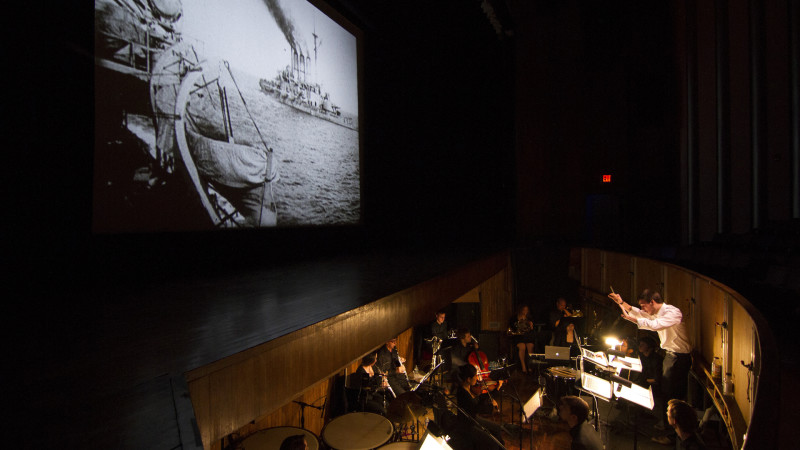Creating a new score for a classic silent film is a big responsibility, one that Sheldon Mirowitz takes very seriously. A professor in the Berklee College of Music’s Film Scoring Department, he teaches a coveted class in which he leads a small group in creating a commissioned score for an iconic film from the silent era. The Berklee Silent Film Orchestra (BSFO) makes its West Coast debut Friday, May 29 at the Castro Theatre as part of the 20th annual San Francisco Silent Film Festival, performing a recently premiered original score to F.W. Murnau’s 1924 masterpiece The Last Laugh.
“This is our coming out party to the silent film community,” says Mirowitz, a long-time professor in the world’s only undergraduate degree program in film scoring. “It’s a wonderful movie. The main thing for me is that I want to do something that will help make it accessible so people can experience it the way it’s supposed to be. I don’t want to make this a concert with the film playing in the background. The film is already a masterpiece, and our score is going to make it even cooler.”

The Last Laugh stars the brilliant Swiss-born German/Austrian actor Emil Jannings, whose life trajectory in some ways echoes the fate of the film’s protagonist. A major star best known for his collaborations with Murnau and Josef von Sternberg, Jannings won the first Academy Award for best actor in 1927-28. Like so many silent era peers, the advent of sound ended his rise in Hollywood, but he thrived back in Europe, starring in classics like The Blue Angel with Marlene Dietrich. But his willingness to work extensively with the Nazi regime meant he was barred from film after the war, and he died in obscurity in 1950.
Widely considered his greatest role, his chief porter in The Last Laugh works in a luxurious hotel. The respect and dignity of his position evaporates when he’s demoted to restroom attendant, and the film explores his efforts to hide his humiliation from his family. For Friday’s screening, the Berklee Silent Film Orchestra performs their score to a new, high-definition DCP print of the film never previously seen in the U.S., obtained by the festival from the Friedrich Wilhelm Murnau Foundation.
With every member of Mirowitz’s class taking turns conducting and sometimes playing, each BSFO performance requires intricate choreography. The ensemble’s instrumentation features strings, woodwinds and brass.

Over the past five years, Mirowitz and his classes have scored nine classic silent features, including Sergei Eisenstein’s Battleship Potemkin, Ewald André Dupont’s Piccadilly, Murnau’s Faust, Harold Lloyd’s Safety Last and Rupert Julian’s Phantom of the Opera, which were all commissioned by the Coolidge Corner Theatre in Brookline, Mass., as part of the theater’s Sounds of Silents program.


